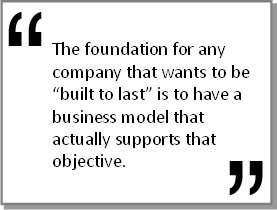The topic today speaks to my personal path of building a business that becomes great such as the likes of Apple and Microsoft.
My two cents on this matter is as follows.
Determine what your purpose is, that is the spirit which you will pour into your business. To do this well, one needs to rid themselves of internal conflict or cognitive dissonance over what it is they believe they are here (on earth) to do. One way to find out is to look for that golden thread in all your areas of involvement. Are you passionate about being an enabler for others or are good at starting projects from nothing and enjoy seeing them grow.
Next is to think about what exactly it is you want your business to stand for. This is the why, why are you in business? It is normally linked to your purpose. So spend time considering what you stand for and what would your employees be volunteering for if your company was a social movement? Can this be something which you view as a dedication to your life’s work?
What problem is your business providing a solution to? I have asked several consultants on business development what it was that they find start-ups tend to get wrong. In many ways they have told me that start-ups tend to underestimate the market for their products. This leads to understated budget forecasts which in turn frustrate operations. Knowing your market requires an understanding of what it is that drives your client’s purchase decision and what factors influence your own margins. This information will help you know what to manage during an economic boom as well as during a recession as the client’s (and your) context becomes different which impacts their purchase decision.
Where is your client? The client or customer has to be top of mind throughout every effort you make in your business. Companies (even the big ones) can get so deeply involved with themselves and forget adding value to their client. The client is the person who determines whether or not we have a business to run in the first place. So we need to place them squarely at the centre of each strategic plan, product development and restructuring process. A word of caution however is, do not try to be all things to all people. Ensure that in doing things right (for the client) you are doing the right things.
Consider the specific type of client your business is providing solutions for. Your mission statement and values statement will help profile the type of client you are targeting. Tim Williams, lead consultant at Ignition Consulting group, states that a business is defined by the clients and services it does not have. To further illustrate this point, Williams states that narrow companies can have large markets; companies such as Mittlestand and Basecamp are a case in point. It is through their focus that they have developed specialisation in their fields. One would travel (and spend a pretty penny) for a specialist doctor whilst no one would do the same for a GP.
